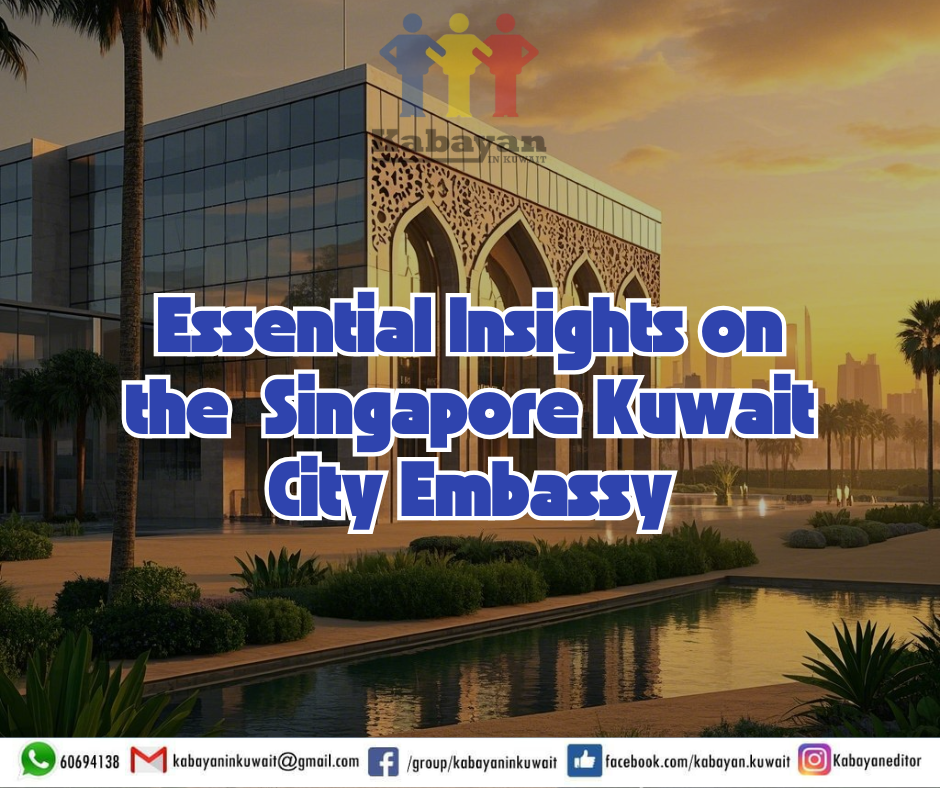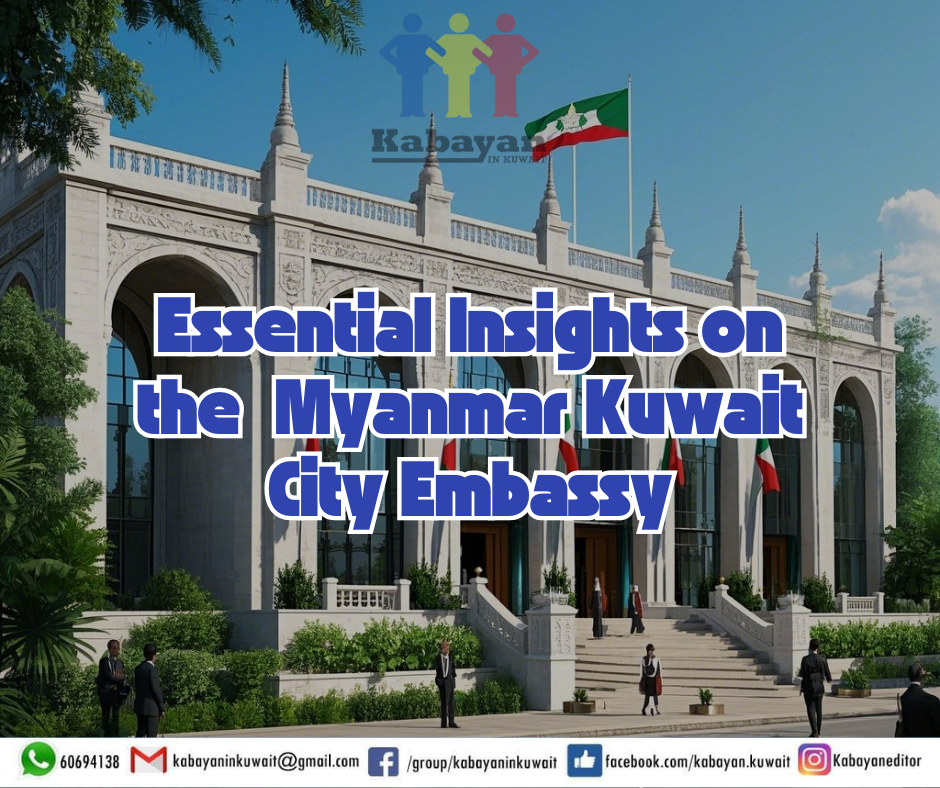A Comprehensive Guide for Aspiring Overseas Filipino Workers (OFWs) Considering Employment in Kuwait

Kuwait has long been a preferred destination for expatriates from around the world, including a significant number of Overseas Filipino Workers (OFWs). The country’s robust economy, particularly its thriving oil industry, offers lucrative job opportunities that attract skilled workers. However, working in Kuwait comes with its own set of challenges and cultural nuances that every aspiring OFW should thoroughly understand before making the decision to work there. This guide provides essential tips and insights to help you navigate the complexities of living and working in Kuwait.
Understanding the Kuwaiti Employment Landscape
Salary and Cost of Living
Before accepting any job offer in Kuwait, it’s crucial to understand the salary structure and how it aligns with the cost of living in the country. Kuwait is known for its relatively high cost of living, especially in terms of housing, transportation, and food. Therefore, it’s vital to assess whether the salary offered is sufficient to cover these expenses while still allowing you to save money. For many OFWs, the ability to save and send money back home is a significant factor in deciding to work abroad.
Accommodation Arrangements
One of the first questions you should ask your prospective employer or recruitment agency is whether accommodation is provided as part of your employment package. Some employers in Kuwait offer free housing, transportation, and even food allowances, which can significantly reduce your living expenses. If your employer does not provide these benefits, you need to carefully consider whether your salary is adequate to cover the costs of renting an apartment and other daily expenses.
Strengthening Your Qualifications
Kuwait has been a hub for expatriate workers for many years, but the job market is becoming increasingly competitive as the local workforce becomes more educated and skilled. To stand out, OFWs must ensure that their qualifications and experience are robust and relevant to the job they are applying for. This is particularly important in high-demand sectors such as the oil industry, healthcare, and government jobs. Enhancing your skills through additional certifications or training can make you a more attractive candidate in the Kuwaiti job market.
Cultural and Professional Etiquette in Kuwait
Language Proficiency
Arabic is the official language of Kuwait, and while English is widely used in the private sector and among expatriates, having a basic understanding of Arabic can be beneficial. It not only helps in daily interactions but also shows respect for the local culture. Moreover, in government offices and public sector jobs, proficiency in Arabic is often required. For OFWs, investing time in learning the basics of the language can make your transition smoother and improve your chances of career success.
Working Hours and Weekends
Kuwait’s workweek typically runs from Sunday to Thursday, with Friday being the designated day of rest. Some companies also recognize Saturday as a rest day, making it a two-day weekend. Standard working hours are from 8:30 or 9:00 AM until 5:30 or 6:00 PM, although this can vary depending on the employer. During the holy month of Ramadan, working hours are usually reduced to six hours per day. It’s essential to be aware of these schedules and plan your personal time accordingly.
Dress Code and Grooming
Kuwait is a conservative Muslim country, and this is reflected in its dress code, especially in professional settings. Men are expected to wear business suits, while women should opt for modest attire that avoids being too tight or revealing. Maintaining a neat and presentable appearance is highly valued in Kuwait, and adhering to these standards demonstrates respect for the local customs. Women, in particular, should be mindful of their clothing choices, ensuring they are appropriate for the work environment.
Meeting and Communication Etiquette
Business meetings in Kuwait follow specific cultural protocols that expatriates should familiarize themselves with. Greetings are typically gender-specific due to religious sensitivities, so men should greet men, and women should greet women. When scheduling meetings, it is advisable to avoid times that conflict with prayer hours, particularly in the afternoon. Morning meetings are generally preferred, as they align with the workday’s start and allow for more productive discussions. Additionally, punctuality is highly regarded, and arriving on time reflects professionalism and respect for your colleagues.
Compensation and Benefits
Tax-Free Salaries
One of the most attractive aspects of working in Kuwait is the tax-free salary. Unlike in many other countries, expatriates in Kuwait are not required to pay personal income taxes, allowing you to take home a larger portion of your earnings. This can significantly enhance your savings potential and make working in Kuwait a financially rewarding experience.
End-of-Service Benefits
Another financial advantage of working in Kuwait is the end-of-service indemnity, which is a lump sum payment made to employees at the end of their contract. This payment is calculated based on your length of service and salary, making it a substantial amount if you have been employed for several years. For OFWs, this indemnity can serve as a crucial financial buffer when transitioning back to life in the Philippines or moving to another job opportunity.
Preparing for Life in Kuwait
Adapting to Kuwaiti Culture
Living in Kuwait requires a willingness to adapt to the local culture and customs. As a Muslim-majority country, Kuwait has specific religious practices that influence daily life, such as the observance of prayer times and Ramadan fasting. Being respectful of these practices is essential for building good relationships with your colleagues and neighbors. It’s also important to understand the social norms regarding interactions between men and women, as these are more conservative compared to Western or even some Asian cultures.
Building a Support Network
Moving to a new country can be challenging, especially if you are far from your family and friends. In Kuwait, it’s beneficial to build a support network of fellow OFWs and other expatriates who can provide guidance and companionship. Many Filipino communities in Kuwait offer social activities, religious services, and even assistance with legal and employment issues. Being part of such a community can help ease the transition and make your stay in Kuwait more enjoyable.
Conclusion
Kuwait offers a wealth of opportunities for OFWs looking to advance their careers and improve their financial situation. However, success in this endeavor requires careful preparation and a deep understanding of the local culture and work environment. By following the tips and guidelines outlined in this guide, aspiring OFWs can make informed decisions and increase their chances of having a positive and rewarding experience in Kuwait. Remember, the key to thriving in any foreign country is adaptability, respect for local customs, and a proactive approach to personal and professional development.
To read more from us: Click Here
To read more of being an OFW in Kuwait: Click Here






